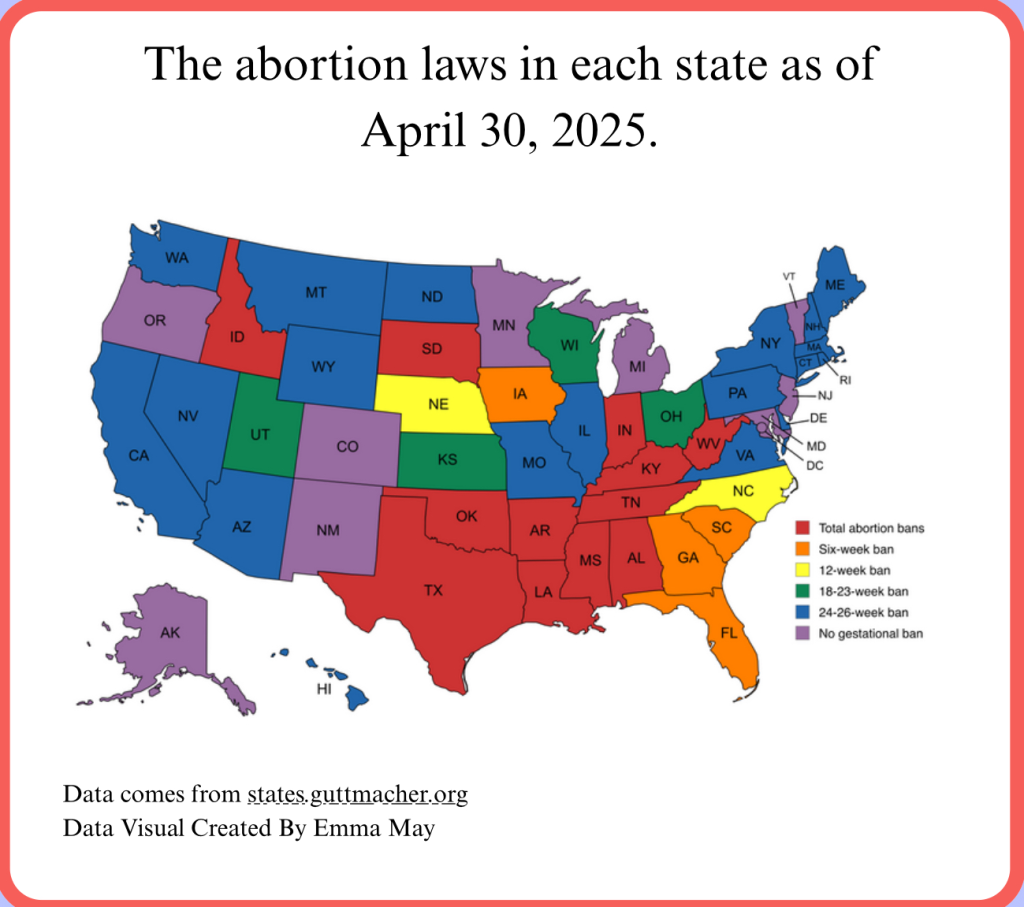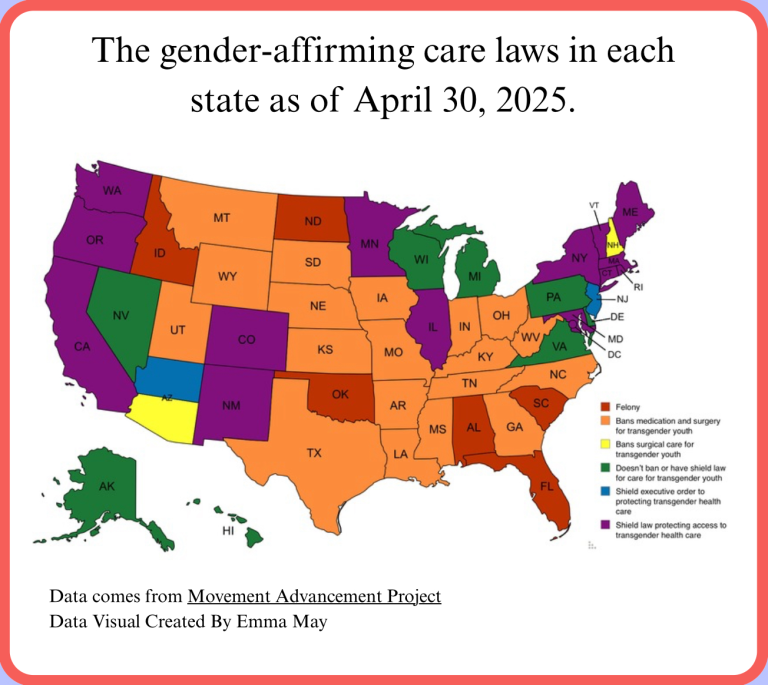By Emma May | UConn Journalism
May 15, 2025
A new bill to strengthen gender-affirming care and abortion protections for both healthcare providers and patients has been introduced in the Connecticut House.
House Bill 7135 is a continuation of the shield law signed in 2023, which protects women seeking abortion services in Connecticut whose legal residence is in another state. Supporters in the General Assembly are looking to establish further protections for the healthcare providers who perform abortions and gender-affirming care, including performing telehealth consultations, so they would not face any legal ramifications from outside states.
“What is happening in this country under the current administration and in various states is just tragic,” State Rep. Jillian Gilchrest, D‑West Hartford said. “Opening the door to all for medically accurate and comprehensive healthcare to individuals is vitally important.”
The General Assembly developed the Reproductive Rights Caucus after the overturn of the historic U.S. Supreme Court case Roe vs. Wade back in 2022, Gilchrest said. The caucus wanted to be a champion for women’s rights not just in Connecticut, but for women in the country, Gilchrest said.
The priorities of the caucus include expanding access to reproductive healthcare on public university state campuses and aligning fertility insurance coverage with a medical standard of care.
There are 12 states that have total abortion bans in the country with extremely limited exceptions, and four states that have a six-week-ban. This Connecticut bill will affect the women in those 16 states if they wish to come to Connecticut to get an abortion.

Gretchen Raffa, the chief policy and advocacy officer for Planned Parenthood of Southern New England, said in written testimony that the bill is necessary for proper and essential medical care.
“No one’s health should be compromised, or health care access denied because of who they are or where they live,” Raffa said.
Regardless of where a person lives, they can look for reproductive and gender affirming healthcare virtually.
“This bill also says anyone who seeks care via tele-health will have their information protected,” Gilchrest said. “This goes for our healthcare providers as well.”
More than 50% of abortions are medical abortions in the United States, and this number has been increasing throughout the past decade, according to Pew Research and the CDC.
“Women can access reproductive healthcare on tele-health and be prescribed a medical abortion,” Gilchrest said. They do not need to have an in-person appointment.”
Women could be in Connecticut or out-of-state, and all the doctors would need to do is prescribe the chemical abortion pill and send it to the correct location, Gilchrest said.

Some University of Connecticut students, such as Rachel Vertefeuille, a 20-year-old senior at UConn, said she opposes the passage of the bill.
“I think that if women are this desperate to get an abortion, they should move to a state that allows it,” Vertefeuille said. “Seeking an abortion over tele-heath can be incredibly dangerous to women’s health and their life.”
Students for Life of America is an anti-abortion group whose mission is to abolish abortion in the United States, including all forms of chemical abortion, and it has taken a firm opposing stance to this bill.
“One in 20 women end up in the ER after a chemical abortion, and it’s terrible that doctors could just prescribe these pills through tele-health,” Jessica Power, New England regional director of Students for Life of America said. “This bill does not protect women at all.”
Abortion advocates have disputed the use of ER statistics. The 2021 study that looked at the issue was later retracted after an independent review found issues with its analysis.
The bill is opposed by some Republicans in the legislature.
“With many of the bills that we do, I think this definitely could be a case that could go to the Supreme Court, and require a decision from them,” State Rep. Cara Pavalock‑D’Amato (R‑Bristol) said.
Abortion and gender-affirming care are considered together under this bill. However, these are usually separate medical issues, Pavalock‑D’Amato said.
“Insurance billing has their own codes and plans because of different services,” Pavalock D’Amato said. “Since there are two different plans, I think there should be two different bills.”

There are six states that have complete bans on gender-affirming care in the United States, making the practice a felony crime, according to the nonprofit Movement Advancement Project. Connecticut, along with 13 other states, has a shield act, which would protect people from these states when looking for this care, according to the project.
If the bill passes, providers would be protected from any legal action states may want to take against them for providing gender-affirming care, especially if it is illegal in their state.
“I think any state willing to stand up and recognize [the LGBTQ+ community] and support them in seeking healthcare is important,” Gilchrest said.
Cason Genovese, a UConn student and TikTok influencer, said he supports the bill. He posts regularly about his life experiences as a transgender man and uses the #21yearsyoung on each post to bring visibility to the young transgender community.

“I think it is great that Connecticut can become a green flag state for not just people seeking affirming care, but also for providers that want to practice medicine and serve the trans community this way,” Genovese, 21, said.
Christine Rebstock, a self-proclaimed “old school” transsexual and rights advocate in Connecticut, testified against the bill.
“You are actively harming children, LGB, and women with this disturbing and relentless legal rollout,” Rebstock said. “Activist-lobbyists have deeply misled Connecticut politicians, and we are facing cultural disaster.”
The bill would protect gender-affirming care for people who have gender dysphoria and gender incongruence. The bill does not touch on conversion therapy, which tries to change a person’s sexual or gender identity using psychoanalysis, behavior modification or intense counseling.
There are 23 states including Connecticut and Washington D.C. that have banned conversion therapy for minors across the state, according to the Movement Advancement Project.
Connecticut House Bill 7135 would go into effect on July 1 if it passes and is signed into law by Gov. Ned Lamont.
